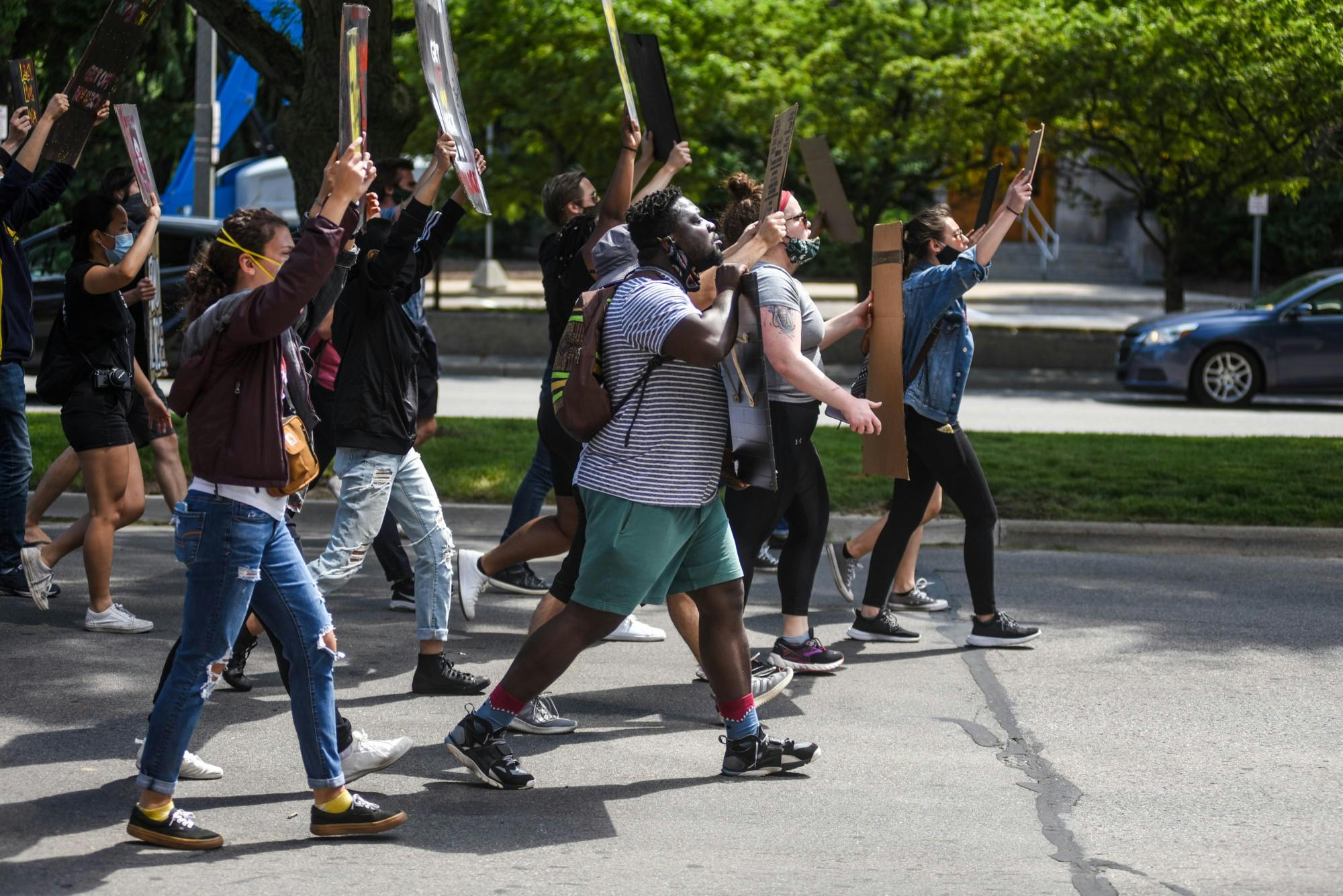In the wake of a global pandemic and a human rights movement, mental health matters though it is often put second to other types of wellness.
Olivia Scott, a staff psychologist from Counseling and Psychiatric Services (CAPS) at MSU, said that according to both research and the work she does on a daily basis, our physical and our mental health typically go hand-in-hand. If we only think about one and let the other slide by, it does our bodies a huge disservice.
MSU students share their experiences.
Comparative cultures and politics junior Rosa Razmi is from Rochester, Michigan. She's been to two protests, both positive and peaceful, organized by agencies in her area other than Black Lives Matter (BLM).
"They did invite police officers," Razmi said. "They did help a lot, which was nice, but it was kind of questionable that, for one of them, they helped lead the protest, which I thought was counterproductive."
Razmi said she was nervous before going to each protest, but she knew she had to go out there and join the fight.
"You see what's going on in the news," she said. "Rochester is a pretty conservative, white suburban area. I knew nothing horrible could happen, but I also knew not to get my hopes up after seeing what happened in Grand Rapids."
Razmi said the state of the world has definitely been taking a bit of a toll on her, but she does her best to remain level-headed and prevent burn-out so that she can lessen the burdens on other communities.
"For me, I look at it in a way that while I am a woman of color, I'm not black. Being able to take breaks from (what's happening) is a privilege because this is daily life (for them)," she said.
While her mental health is coming second right now, Razmi said she still tries to take an hour to herself each day, whether in the morning or at night, to talk through feelings, de-stress and decompress with friends via Zoom.
Razmi also said she monitors her social media use, instead opting to make it an education tool for people that still follow her from high school. While doing her best to stay vocal, Razmi said she avoids things like comment sections or reply threads because she thinks that's where a lot of the "nasty energy" comes from.
Pre-veterinary sophomore Nadia Caldwell is from Wyandotte, Michigan. She's been to three protests, describing each as unreal and like a dream or scene from a movie.
Before going to each protest, Caldwell said she was nervous and scared, but also excited and empowered to be standing up for what she believes in.
The biggest protest Caldwell attended was in Detroit on the first day. She said it started as peaceful and the police officers were originally helping, but it got to a point where the protesters grew tired of the path they were granted and decided to stem outward.
"It became hectic for a little while, but it didn't escalate until right before I left," Caldwell said.
Since, Caldwell said she's felt anxious, as the deaths of the Black community continue to increase and all accountability is essentially being overlooked.
But, she said she's also still hopeful because the country is coming together for change and steps have been taken to push forward.
"I think that's what the government fears the most," she said.
Caldwell is trying to do as much as she can for her mental health, such as meditation, but, similar to Razmi, it is second on the agenda.
"I like putting the word out there," Caldwell said. "I like educating my friends because I feel like the more people we can involve and the more people who have privilege like I do say something, people are really going to start listening."
Support student media!
Please consider donating to The State News and help fund the future of journalism.
She said she avoids posting personal things on all of her social media accounts, instead opting to post things related to the movement and its events, pride month, presidential updates and more.
"I'm way more concerned about advocacy (right now) because I'll be fine," she said. "I don't have to live my life in fear every day like some of these people do."
How to help yourself.
Cassandra Corrado, a sex educator, posted a list of manageable resting and recovering strategies on Instagram that protesters can utilize to maintain things like energy, connection and motivation:
Scott said a tailored approach to mental health is the way to go. It takes a certain level of self-reflection to find out what type of assistance an individual might need because one thing won't necessarily work for everyone.
"I'm sure it could feel tempting to just want to go go go go go, (but) I often encourage folks to think that rest is actually also advocacy sometimes, or in the interest of advocacy work," Scott said.
"I (also) think of self-care and self-compassion as a form of advocacy when you're from a marginalized group because the message from society is that, maybe your health isn't as important as other people's health," she said. "When you get that message all the time, to say 'you know what I do matter, my health does matter, I can take care of myself, I can rest and treat myself,' ... that is a form of advocacy and social justice because society would say (otherwise)."
"The bottom line is, we all do burn-out eventually," Scott said. "If we want to keep this work, because it's going to be long work, ... think about the long game."
Discussion
Share and discuss “Students share experiences with balancing mental health and activism” on social media.








